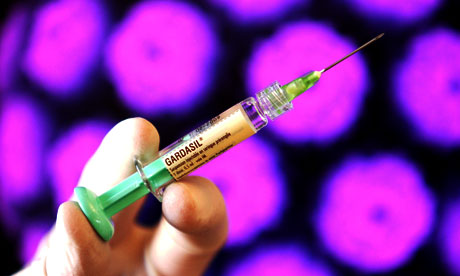Africa:Cancer kills more people globally than HIV/Aids, TB and malaria, and in Africa it is becoming a growing health burden

Cancer already kills more people globally than HIV/Aids, tuberculosis and malaria put together, according to specialists, so the disease burden hasn't escaped developing governments. The WHO forecast that last year it killed nearly eight million people worldwide.
But in the face of scarce resources, and so many competing priorities, many have been powerless to do much. "If you are the Kenyan minister of health and you have $10 per head to spend, you can imagine how hard it must be to prioritise," says Prof David Kerr, a cancer therapeutics specialist and co-founder of the cancer care charity for Africa, AfrOx.
Kerr helped set up AfrOx to raise awareness and improve cancer care in the continent. Out of all the developing regions of the world, countries in Africa are the most resource-challenged: radiotherapy, for example, is available in just 21 out of 53 nations, and there are very few oncologists. Many African languages still do not have a word for cancer.
Yet cancer is only going to become a growing burden. "More people are now reaching middle age, a time when cancer becomes more prevalent," explains Dr David Forman, a cancer epidemiologist at the International Agency for Research on Cancer (IARC), a WHO agency, adding that Africa's population is growing, and getting older.
The difference is that a disproportionate number of cancers in Africa are caused by infections, such as the hepatitis viruses (B and C), which cause liver cancer, or the human papillomavirus (HPV), which causes 98% of cervical cancers. The worldwide average for infection-related cancers is about 22%; in Africa, the figures are much higher: 40% of cases in women and 30% in men.
The silver lining in these grim numbers is that there is a great opportunity to intervene before the onset of cancer, thanks to vaccines, says Dr Corey Casper, an epidemiologist at the Seattle-based Fred Hutchinson Cancer Research Center. Casper, who runs the Uganda Program on Cancer and Infectious Diseases, which provides research, training and clinical care on infection-related cancers, says the problem is cost: an HPV vaccine treatment costs $350 (£220), for three doses over six months, whereas the benchmark for standard childhood vaccines is about $1.
But even at $350 a pop, a vaccination campaign could still be worth running. Cervical cancer is the most prevalent cancer among women in sub-Saharan Africa and the most deadly. However, the cost of national screening programmes also remains substantial, despite efforts to develop lower-cost systems. While there hasn't been a detailed cost-benefit analysis of screening versus vaccination for cervical cancer yet, organisations such as the Global Alliance on Vaccination and Immunisation (GAVI) are already working to bring down the cost of the HPV vaccine.
The problem, Casper says, is that cancer is still perceived as too expensive to treat. "Some childhood cancers cost as little $500 to cure, with success rates of 95%. It costs $300 per month for life to keep someone on ARVs [the drugs used for HIV], so a one-off $500 to treat a child seems like money well-spent."
The international community also dictates the agenda to a certain extent: Uganda receives $200m annually from the US for HIV treatment, but less than a $1m for cancer.
Kerr, however, says he is encouraged by the recent increase in awareness among donors and the international health community. The UN will hold a high-level meeting on non-communicable diseases in September this year and one of the debates will focus on whether cancer, diabetes, heart diseases and chronic respiratory diseases – non-communicable diseases – should be included in millennium development goals. For Kerr and his colleages, this is the holy grail of lobbying: MDG status would guarantee a flow of aid for cancer care and research in developing countries. Watch this space.
